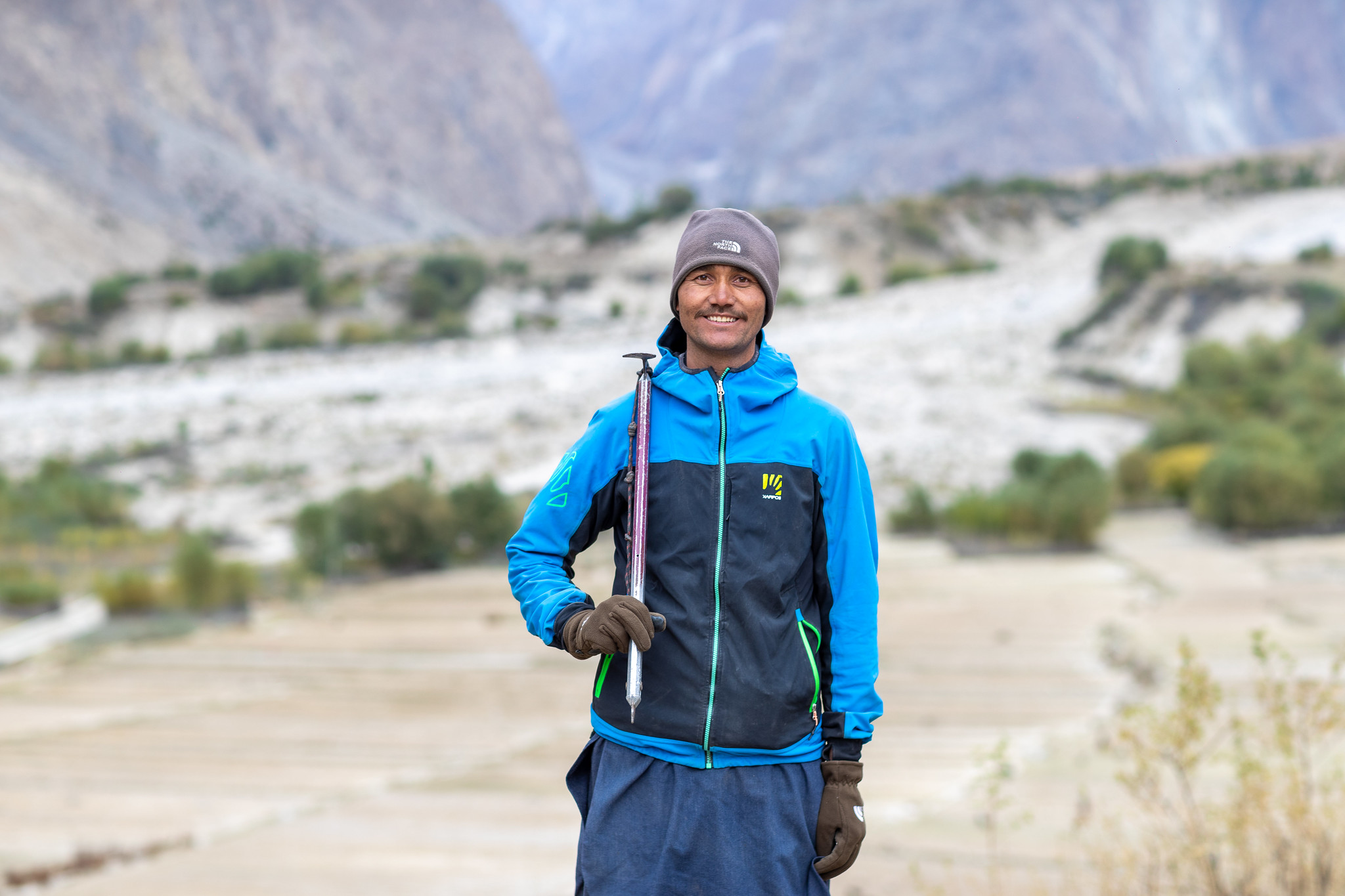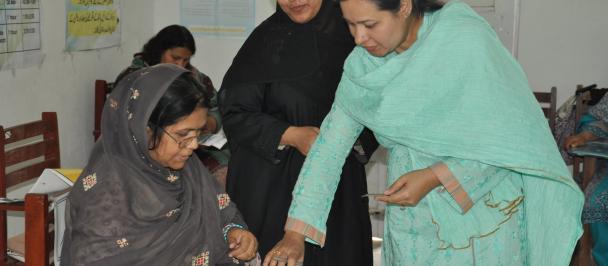Strengthening local governance through participatory and inclusive approach: The Social Innovation Platform in Hushe Valley
June 15, 2023

Here is part three of our three-part series on our journey in the implementation of the social innovation platform in the Hushe Valley. In this part, we will delve into the perceptions of the Hushe Valley communities as revealed by the survey conducted in November 2022. The survey aimed to assess the impact of the Social Innovation Platform on strengthening local governance through a participatory and inclusive approach. Read part 1 and part 2.
The Social Innovation Platform approach was developed in response to the increasingly complex challenges ranging from climate change to regional conflicts to social inequalities. These challenges require development solutions to be more effective and inclusive, and, most importantly, speak to the real-time issues communities experience. Traditional models of developing interventions are outgrown by the fast-changing nature of the challenges in today’s world. Therefore, there is a need for new ways of collaborating to find common ground and foster transformative actions. In this vein, governance is the key enabler at the local level in this regard as it is the bearing structure that connects actors and actions across various levels and sectors.
Through innovative tools, the SIP approach strengthens local governance by amplifying the voices of vulnerable and marginalized communities, empowering them to drive change, and fostering inclusive collaboration between citizens, governments, and the private sector.
Deep Listening is a set of qualitative tools that, when used in conjunction with quantitative data, can help reveal a community's narratives, needs, challenges, and opportunities in depth. Thus, to complement the Deep Listening process, a survey was conducted to gain insights into the perceptions of local governance in the Hushe Valley. The survey gathered information on governance responsiveness and effectiveness, public service delivery, willingness to participate, and trust in public planning from a reference group of 163 respondents living across eight villages in the valley.
A) Satisfaction with the government’s support
The survey reveals that many local people are satisfied with the support they receive when seeking help from the government for problem-solving. However, some respondents reported that their challenges were never addressed, indicating a need for local governments to understand the community's needs better and create civic spaces for collaborative development solutions.
During the Deep Listening process, Azban, a farmer from the Hushe Valley, shared his concerns about the poor road conditions and lack of government action, highlighting the need for continued efforts to improve local infrastructure and support:
“Road conditions here are bad. Because of this, we cannot transport goods out from the valley to the larger market. Every year, excessive floods cause destruction and road blockage […] And the government is doing nothing here.”
While Taisir, another interviewee who was satisfied with the Government’s response said, “Government response is very good in Hushe Valley. [They] shut down the markets during the pandemic and made people aware of the importance of social distancing. The government listens to social issues […] If we request support, the government will provide us with everything during the pandemic."
B) Confidence in Public Service Delivery
According to the survey, a majority of respondents expressed confidence that new public services introduced by the government in their communities would improve their lives. This indicates a positive perception of public service delivery. However, there is a minority of respondents that reported low confidence in these services. To address this, SIP aims to strengthen trust and confidence in institutions by facilitating better community listening and participation processes.
C) Willingness to participate in public planning
More than half of the respondents indicated a clear willingness to participate in local community consultation and planning, while a smaller percentage reported being unlikely to participate. Meanwhile, SIP aims for inclusive participation - reaching people and communities that are oftentimes left out of decision-making processes, for instance, by creating enabling environments that promote government and citizens’ capacity and willingness to engage in collaborative public planning.
A woman farmer from Khandey village explains how she benefited from participating in the SIPs co-creation session, “I learned a lot from the co-creation session. I have been collecting various kinds of herbs for many years and they usually get wasted because I didn’t think to sell them. Now I’m aware of their value and I have also gained knowledge about herbal tea production - this seems like an opportunity for me to earn money. After the co-creation session, I stopped giving herbal products away as I intend to sell them to earn money for my livelihood.”
The way forward
During the first round of experiments in Hushe Valley, UNDP’s Accelerator Lab held a sensemaking and cross-pollination session with various project units, including Environment and Climate Change unit, Development Policy Unit, Youth Empowerment Programme, SDG Unit, Gilgit Baltistan, among others, to map all existing or concluded projects in Gilgit Baltistan that has the potential for scalability or replicability. Once all the information was shared by the respective units/projects, we mapped trends, identified potential overlaps, extracted insights, and added them to the existing portfolio.
From this session, five themes were identified: Environmental sustainability and climate resilience, digital transformation, agrotourism and food security/value chain, women's livelihood, resilience and skill development, and waste management.
Building upon the outlined themes, UNDP Pakistan's Accelerator Lab (AccLab) launched the 'Gilgit Baltistan Innovation Challenge 2023' in collaboration with our partners: SDG Unit Gilgit Baltistan, UNDP Bangkok Regional Hub, Development Policy Unit (DPU), Agirre Lehendakaria Centre (ALC), and School of Leadership Foundation (SoLF). The challenge was designed to enhance community-led development and create an ecosystem for young change-makers to transform their ideas into innovation. The challenge was launched in five districts across GB. It was divided into the ideation and acceleration phases, to scale up tested prototypes (in the acceleration phase) while supporting new prototypes through the ideation round.
Over 1000 applications were received, and five were shortlisted for the acceleration stage while ten attended the ideation phase. Amongst this final group of participants, 40% were women and persons with disabilities, which reflects the diverse and inclusive nature of the challenge. The SIP approach was utilised to build the capacity of social entrepreneurs through effective and positive engagement, networks, training and mentoring to boost community confidence and buy-in. Boot camps were designed and executed using the tools and methodologies of the SIP approach. ALC and UNDP launched 'train the trainers' workshops to build the capacities of trainers and facilities that conducted the boot camps.
The outcomes of the Innovation Challenge showed that businesses need to be planned for each region of GB, rather than collectively, as geographical dynamics serve as a key factor. The social innovation business canvas was the highlight of the boot camps, leading participants to understand the social impact of their businesses to transform their communities besides the financial outcome.
A five-day boot camp was held with participants from the larger GB area, with ideas emerging that catered to environmental sustainability and climate resilience, digital transformation, agrotourism and food security/value chain, women's livelihood resilience and skill development, and waste management. In June 2023, a multi-stakeholder conference will be organised to present the 'SDG investments portfolio for GB' to the Government of Gilgit Baltistan and private investors, showcasing real-time success case studies from the challenge. The conference aims to present an ‘SDG investments portfolio for GB’ to the Government of Gilgit Baltistan along with the private investors and highlight types of growing businesses (social enterprises) while showcasing real-time success case studies from the challenge.
Authored by:
Javeria Masood, OIC Head of Innovation AccLab- UNDP Pakistan
Fernanda de Barros Pezzatto, SIP Hushe Valley Coordinator- Agirre Lehendakaria Center
Authors’ note:
The authors would like to acknowledge the real heroes and local community driving change on the ground. This is a collaborative work thanks to many teams and the individuals that constitute those teams: Basharat Ali, Hassan Saling, Noureen Maryam, Samina Anjun, Tahzeeb UI Hassan, Jon Mancisidor, Gorka Espiau, Itziar Moreno, Patrick Duong, Yi Zhang, Ehsan Gul, Ashir Wilson, Ammara Durrani, and Umar Malik.

 Locations
Locations